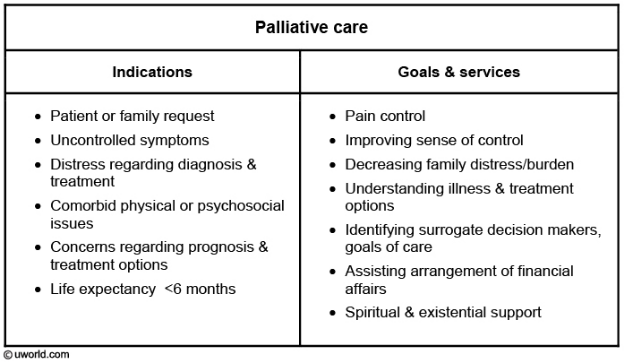palliative care
- related: Psychiatry, Medicine
- tags: #note
Statements
- intro
- what questions need to answer
- don’t answer the questions
- take control of the meeting: focus on end of life
- he is at a place where I worry he is not getting better
- we are here to make some decisions
- he is very sick
- he is in a hard place

Palliative care is a model of treatment that involves managing symptoms, providing psychosocial support, coordinating care, and assisting with decision making to relieve suffering and improve quality of life for patients and families facing serious illnesses. An interdisciplinary palliative assessment often includes nursing staff, chaplains, social workers, therapists, and nutritionists who work together on a comprehensive treatment plan. This model of care has been found to decrease unnecessary medical interventions, reduce depressive symptoms, and potentially improve survival, particularly in patients with terminal cancer. Families of patients who receive palliative care interventions also experience lower rates of prolonged grief and post-traumatic stress disorder. Palliative care can be offered to patients at any time in the course of a serious illness, even concurrently with disease-modifying medical therapies. This is in contrast to hospice, which is a model of palliative care offered to patients at the end of life when life-prolonging therapy is no longer indicated (Choice A).